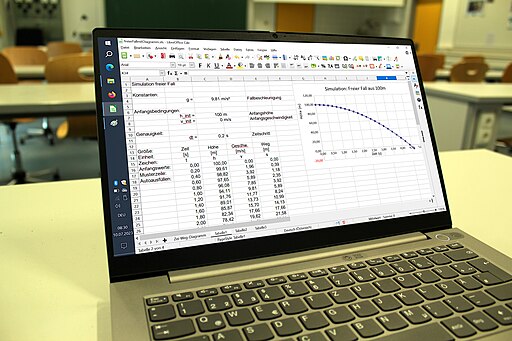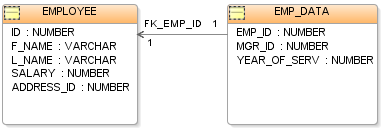A spreadsheet is a grid for organizing and calculating data, while a database is a structured system for storing and managing large amounts of data.
TL;DR Spreadsheet Vs. Database
Spreadsheets are best suited for small-scale projects that require basic calculations and analysis. They offer simplicity, flexibility, and ease of use for individuals or small teams. However, as the size and complexity of data grow, spreadsheets can become unwieldy and prone to errors.
Databases excel at handling large volumes of complex data with multiple users accessing the information simultaneously. They provide robust security measures, efficient storage options, and superior data integrity. Databases are ideal when scalability is required or when dealing with critical business operations.
Definition of Spreadsheet

A spreadsheet is a digital document or software application used for organizing, storing, and manipulating data in a tabular format.
It consists of rows and columns where users can input text, numbers, and formulas to perform calculations, analyze information, and create various types of charts and graphs. Spreadsheets are versatile tools for tasks such as budgeting, data analysis, project management, and more.
Popular spreadsheet software includes Microsoft Excel, Google Sheets, and LibreOffice Calc. Users can also automate tasks and generate reports by utilizing functions and formulas, making spreadsheets valuable for businesses, academics, and individuals for data-driven decision-making.
Definition of Database

A database is a structured and organized collection of data, typically stored electronically, designed for efficient data storage, retrieval, and management.
It employs a systematic method for categorizing and storing information in tables, which consist of rows and columns. Databases serve as repositories for various types of data, such as customer records, inventory, or scientific data. They support complex queries, data integrity, and relationships between different data elements.
Database management systems (DBMS), like MySQL, Oracle, or Microsoft SQL Server, provide tools to create, maintain, and query databases, making them crucial for businesses, institutions, and applications requiring data storage and retrieval.
Spreadsheet Vs. Database – Key differences
| Aspect | Spreadsheet | Database |
|---|---|---|
| Data Structure | Grid with rows and columns. | Structured tables with rows and fields. |
| Complexity | Simple and suitable for small datasets. | Complex and suitable for large datasets. |
| Data Relationships | Limited support for defining relationships. | Supports complex data relationships. |
| Data Integrity | Limited data integrity and validation. | Strong data integrity and validation. |
| Scalability | Not suitable for large-scale data storage. | Designed for large-scale data storage. |
| Multi-User Collaboration | Limited real-time collaboration features. | Supports multi-user collaboration features. |
| Data Retrieval & Queries | Basic data retrieval and querying features. | Advanced querying and data retrieval. |
| Automation | Limited automation capabilities. | Supports automation through scripts/triggers. |
| Data Security | Basic access control options. | Robust access control and security features. |
| Use Cases | Simple calculations, lists, small datasets. | Complex data management, large datasets. |
| Examples | Microsoft Excel, Google Sheets. | MySQL, Oracle, Microsoft SQL Server. |
Advantages and Disadvantages of Spreadsheets
Advantages of Spreadsheets
- Ease of Use: Spreadsheets have a user-friendly interface with rows and columns, making them easy for beginners to understand and use.
- Flexibility: Spreadsheets can handle a wide range of tasks, from simple calculations and data organization to creating charts and graphs.
- Calculation Functions: They offer built-in mathematical and statistical functions, making it convenient for performing calculations and analysis.
- Quick Data Entry: Data can be entered manually, copied and pasted, or imported from other sources with relative ease.
- Instant Visualization: Users can create charts and graphs to visualize data trends and patterns.
- Portability: Spreadsheets can be easily shared via email or cloud storage, facilitating collaboration.
- Customization: Users can customize spreadsheets with formatting, formulas, and macros to automate tasks.
Disadvantages of Spreadsheets
- Limited Data Handling: Spreadsheets are not well-suited for handling large datasets or complex databases.
- Data Integrity: Errors can occur due to manual data entry, and it’s challenging to maintain data integrity without proper controls.
- Limited Collaboration: While they support basic collaboration, real-time multi-user collaboration can be challenging.
- Version Control: Keeping track of different versions can be difficult when multiple people are working on a spreadsheet.
- Security Risks: Spreadsheets can be vulnerable to data breaches, especially when shared without adequate security measures.
- Lack of Automation: Complex tasks may require manual intervention and lack the automation capabilities of databases.
- Scalability: Spreadsheets may become slow or unmanageable when dealing with a large amount of data.
- Difficulty in Handling Relationships: Managing complex relationships between data elements can be cumbersome.
Advantages and Disadvantages of Databases
Advantages of Databases
- Data Integrity: Databases enforce data integrity constraints, ensuring that data is accurate and consistent.
- Data Security: They offer robust security features, including user access control, encryption, and auditing to protect sensitive information.
- Scalability: Databases can handle large volumes of data and scale as data needs grow.
- Complex Queries: They support complex queries and data retrieval, making it easier to extract specific information from vast datasets.
- Data Relationships: Databases can establish relationships between tables, allowing for efficient storage and retrieval of related data.
- Concurrent Access: They support multiple users accessing and modifying data simultaneously without conflicts.
- Backup and Recovery: Regular backups and recovery mechanisms ensure data can be restored in case of failures.
- Automation: Automation features like triggers and stored procedures can streamline repetitive tasks.
- Structured Data: Databases organize data into structured tables, reducing redundancy and improving data organization.
Disadvantages of Databases
- Complexity: Database design and management can be complex, requiring expertise in database systems.
- Cost: High-quality database systems can be costly to implement and maintain, especially for large organizations.
- Learning Curve: Users need training to effectively work with databases and write complex SQL queries.
- Resource Intensive: Databases consume system resources, which may impact system performance, especially for large-scale applications.
- Development Time: Building and maintaining a database-driven application can take longer than simpler solutions.
- Rigid Structure: Changes to the database schema can be challenging and may require careful planning and migration.
- Backup and Recovery Complexity: While databases offer backup and recovery features, managing these processes can be complex.
- Vendor Lock-In: Organizations may become dependent on a specific database vendor’s technology, making it challenging to switch to an alternative.
Image Credits
Featured Image By – tomfield from Pixabay
Image 1 By – MikeRun, CC BY-SA 4.0 , via Wikimedia Commons
Image 2 By –









